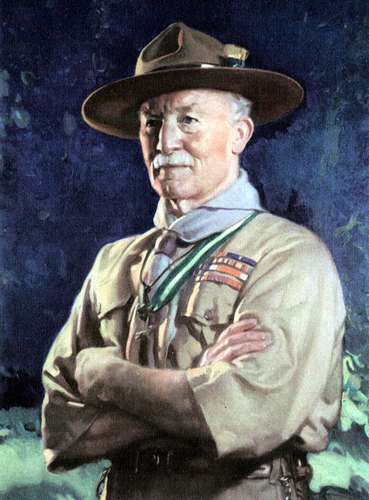Scouting History
This is a brief summary on the history of Scouting. There are several sources on the origin of Scouting if you are looking for a more in-depth guide. Some are listed at the bottom of this page.
Lord Baden-Powell

Lieutenant General Robert Stephenson Smyth Baden-Powell is known as the Founder of Scouting. Born in 1857 in London, England, Baden-Powell served as a Lieutenant in the British Army and was stationed mainly in Africa and Asia. While in Africa, Baden-Powell began to formulate his idea of scouting based on his military experience.
After his military service, Baden-Powell dedicated the rest of his life to Scouting, growing and spreading the movement across the world. Baden-Powell died in 1941 and his grave is in St Peter's Cemetery in Nyeri, Kenya. At the time of his death, there were over 3 million scouts throughout the world.
Fun Fact: Baden-Powell's car (a 20-horsepower Rolls-Royce) was nicknamed 'Jam Roll'.
Origin of Scouting
On his return to England, Baden-Powell wanted to test out his ideas for Scouting. In August 1907, he held an experimental camp at Brownsea Island in Dorset, England with 20 boys where he tested The Patrol Method, and taught them Scouting skills. The camp was a great success, and Baden-Powell published his ideas in a book titled 'Scouting for Boys'. The book became very popular, and soon scout troops began to form throughout the country.
Scouting for Boys was translated in other languages and soon Scouting became a worldwide movement. Scouting was introduced in Trinidad and Tobago in 1912. Girl Guides was also born of this movement, as well as other variations of Scouting such as Air Scouts, Sea Scouts, Cub Scouts, and Rover Scouts. Currently, there are over 50 million registered Scouts throughout the world.
For the history of our troop, see the History page here.
Discussion Questions
Here are some questions that can help you understand this topic better:
- Who is considered the Founder of Scouting?
- In what year did Scouting begin?
- When did scouting begin in Trinidad and Tobago?
More Reading
